Postgraduate Course
This postgraduate course focuses on autoimmune and cholestatic liver diseases, covering four key conditions: primary biliary cholangitis (PBC), autoimmune hepatitis (AIH), IgG4-related cholangitis (IgG4-RC), and primary sclerosing cholangitis (PSC). The programme is structured into four blocks, each addressing one of the disorders. Participants will explore diagnostic challenges, management strategies, and the evolving landscape of patient care. Sessions aim to enhance understanding and improve clinical outcomes in these complex conditions.

Annika Bergquist (Sweden)
Annika Bergquist is a professor in gastroenterology and hepatology at Karolinska Institutet. She earned her medical degree in 1992 and her PhD in 2002, focusing on bile duct cancer in primary sclerosing cholangitis (PSC). She is also a senior consultant at Karolinska University Hospital. Her research primarily targets autoimmune liver diseases, especially PSC and bile duct cancer, aiming to develop new diagnostic tools and treatments. She collaborates with national and international study groups and has contributed significantly to the field through numerous original publications, reviews and guidlines and research projects.

Marco Carbone (Italy)
Marco Carbone is Professor of Hepatology at the University of Milano-Bicocca and a senior clinician at the Niguarda Liver Transplant Centre in Milan. His research is dedicated to understanding the mechanisms underlying autoimmune and cholestatic liver disorders. He founded and co-chairs the Italian PBC and PSC Registries, sits on the steering committee of the Global PBC Study Group, and serves as Vice-Chair of the PBC Foundation Medical Advisory Board

Emma Culver (United Kingdom)
Emma Culver (BSc MBChB DPhil FRCP) is a Consultant Hepatologist at the Translational Gastroenterology and Liver Unit, John Radcliffe Hospital in Oxford, and Hon. Senior Lecturer at the University of Oxford, UK. She has a clinical and translational interest in autoimmune liver and pancreatic diseases. She founded and chairs UK-IgG4, serves on the Steering Committee for IgG4 Advisory and Working Groups and the Medical Advisory Board for the IgG4-Ward patient organisation. She serves on the Steering Committee for UK PSC and the BASL Immune Mediated Liver Disease Group, on the Medical Advisory Board for the PBC Foundation, and Expert Panel for PSC Support. She receives funding from NIHR BRC Oxford and the Academy of Medical Sciences.
This session focuses on the management of primary biliary cholangitis (PBC), a chronic, progressive autoimmune liver disease characterised by inflammation, fibrosis, and loss of intra-hepatic bile ducts. Early diagnosis and risk stratification are essential to identifying patients at higher risk of disease progression, enabling personalised management and timely initiation of effective therapies. Clinicians often overlook the impact of symptoms and autoimmune comorbidities on patient quality of life. The primary therapeutic goal is to reduce ALP levels, as this correlates with improved long-term outcomes. However, the treatment of PBC faces challenges within the regulatory approval model, which demands evidence on hard endpoints for full marketing authorisation. Novel therapies entering the market, such as the PPAR agonists, face even greater obstacles post-approval due to the expanding treatment options. This session will cover when to suspect PBC, how to stage and risk-stratify patients, manage comorbidities, and select candidates for second-line therapies.
Learning objectives:
- Which are the common pitfalls in diagnosis of PBC
- How to manage extra-hepatic autoimmune comorbidities
- How to stage and stratify patient’ risk of disease progression
- How to assess and improve quality of life in PBC
- Who to priorities for and how to allocate second-line therapies in PBC
This session focuses on the management of autoimmune hepatitis (AIH), a chronic inflammatory condition in which the immune system targets liver cells, leading to inflammation, fibrosis and, if under-treated, progression to cirrhosis. The application of a structured management algorithm is critical for guiding therapy and improving patient outcomes. The role of liver biopsy and pathology is essential in confirming the diagnosis, assessing disease severity, and informing treatment decisions. The standard treatment involves immunosuppressive therapies, but clinicians often face challenges regarding disease relapse and managing the side effects of long-term immunosuppression. A key question in AIH management is the timing of immunosuppression withdrawal: determining if and when it is safe to taper therapy without risking disease recurrence. For acute severe AIH, early liver transplantation may be required in corticosteroid non-responders to prevent liver failure. This session will also discuss diagnostic work-up, including staging, monitoring of ALT and IgG levels, and how to approach second-line treatments in difficult cases.
Learning objectives:
- Understanding the diagnostic challenges and criteria for AIH
- Exploring the therapeutic algorithm and selecting patients for alternative therapies in refractory cases
- The role of liver biopsy and pathology in guiding management decisions
- Managing immunosuppressive therapies and determining the right time for withdrawal
- When early liver transplantation is needed for corticosteroid non-responder acute severe AIH
This session addresses the complexities of IgG4-Related Cholangitis (IgG4-RC), an under-recognised chronic fibro-inflammatory condition that can cause cholestasis, biliary strictures and liver damage. IgG4-RC has a strong association with autoimmune pancreatitis, and forms part of a multi-system IgG4-related disease. Controversies exist surround the diagnosis and management of IgG4-RC. This session will cover the epidemiology of IgG4-RC and its links to autoimmunity and atopy. It will cover diagnostic challenges and emerging tools to differentiate IgG4-RC from other diseases, including primary sclerosing cholangitis (PSC) and cholangiocarcinoma. The role of biomarkers, including serum IgG4 levels, in risk stratification and guiding therapy will be discussed, alongside the management of organ damage and secondary comorbidities that arise from the disease. Special focus will be given to the treatment landscape, including the role of corticosteroids, immunosuppressive therapies, as well as novel disease-modifying therapeutic approaches for relapsing and refractory disease.
Learning objectives:
- Understanding the epidemiology of IgG4-RC and its links to autoimmunity and atopy
- Addressing the controversies and diagnostic challenges in distinguishing IgG4-RC from other cholangiopathies
- Exploring the role of biomarkers, including serum IgG4 levels, in risk stratification and guiding therapy
- Managing organ damage and the secondary comorbidities associated with IgG4-RC and autoimmune pancreatitis.
- Reviewing novel therapies for relapsing and refractory IgG4-RC and exploring strategies to achieve long-term disease control
This session will address the management of Primary Sclerosing Cholangitis (PSC), a chronic, progressive cholestatic liver disease characterized by inflammation and fibrosis of the bile ducts, leading to liver dysfunction and cirrhosis. PSC poses numerous diagnostic dilemmas, particularly regarding risk stratification, as the disease course is highly variable. MRI plays a crucial role in long-term follow-up and early detection of cholangiocarcinoma, with this session offering a tandem perspective from both radiologists and hepatologists on its evolving use. Endoscopic retrograde cholangiopancreatography (ERCP) is a pivotal tool in PSC management, and this session will cover when, how, and by whom ERCP should be performed. Currently, there are no approved medical therapies for PSC, but the session will highlight the promising landscape of emerging treatments that offer a potential silver lining for PSC patients. Additionally, the role of liver transplantation will be discussed for patients with advanced disease or complications such as recurrent bacterial cholangitis or cholangiocarcinoma risk.
Learning objectives
- Addressing diagnostic dilemmas and risk stratification challenges in PSC
- Understanding the role of MRI in PSC follow-up and early cancer detection, from both radiology and hepatology perspectives
- Managing biliary strictures and recurrent bacterial cholangitis in PSC patients
- ERCP in PSC: when to use it, how to perform it safely, and the importance of expertise-driven approach
- Surveillance strategies for cholangiocarcinoma and management of PSC-related malignancies
- Assessing the current challenges in drug development and reviewing promising investigational therapies
This State-of-the-art will be delivered by Richard Thompson, Professor of Molecular Hepatology at King’s College London, and Honorary Consultant Paediatric Hepatologist at King’s College Hospital, London. His group identified several of the genes that cause PFIC. These have led to a better understanding of the pathophysiology and natural history the diseases. He has gone on to lead several clinical trials in the treatment of cholestatic liver disease. In recent years it has become clear that the genes involved in early onset paediatric disease are also important in the aetiology of adult onset disease, and Richard has been at the forefront of exploring their true role. He is the clinical lead for the Liver Molecular Genetics laboratory that provides NGS-based testing for liver, gastrointestinal and pancreatic disease for most of the UK. He is a member of the NIDDK-funded ChiLDReN network, and on the steering committees of GALA and NAPPED consortia.
Learning objectives
- To understand the mechanisms involved in genetic cholestasis
- To understand something of role of genetic variation in late onset disease
- To learn when to send genetic testing
- To know how to understand the results

